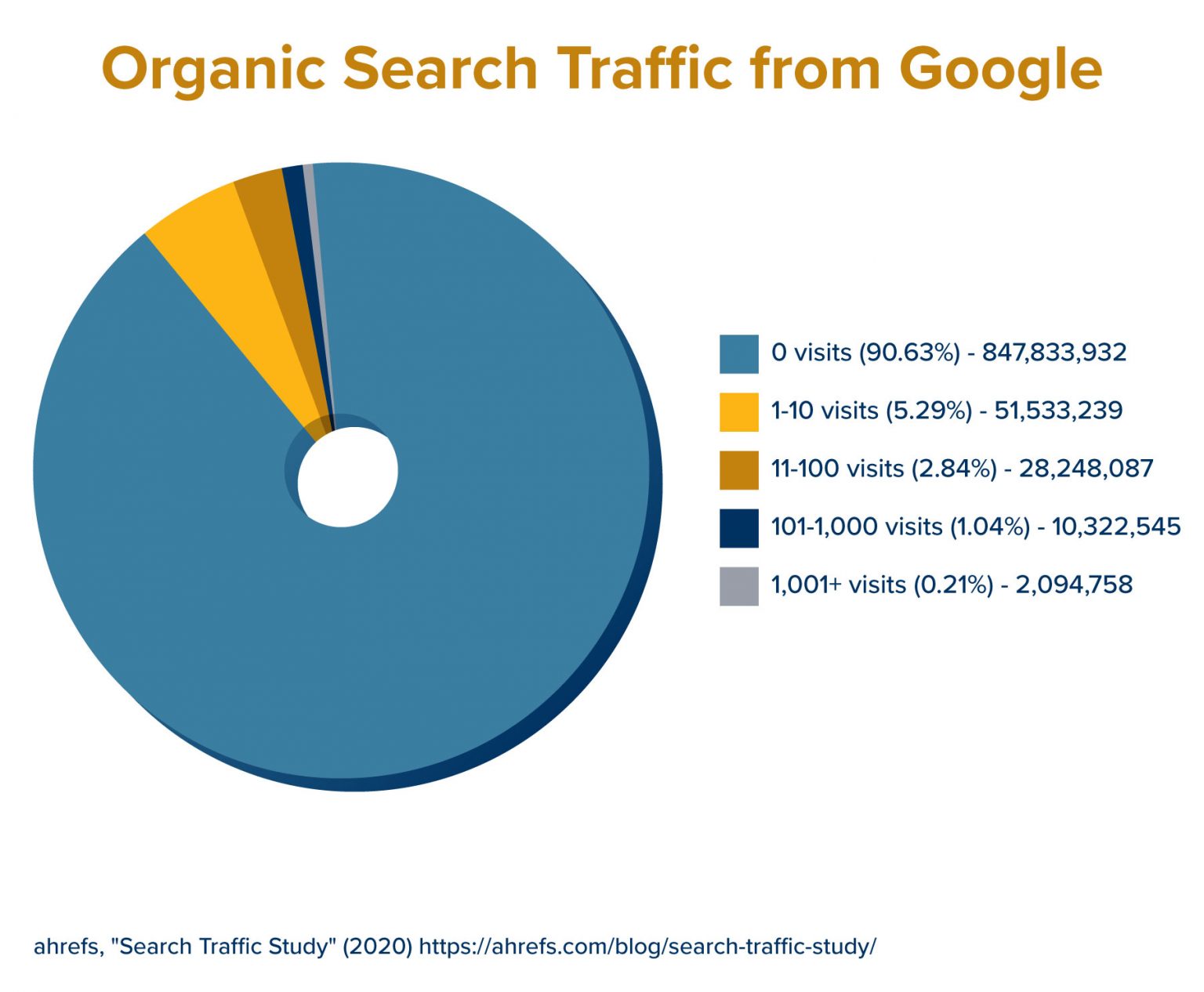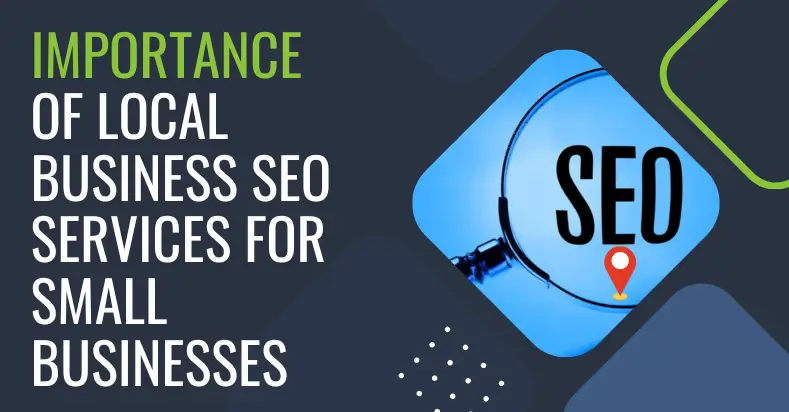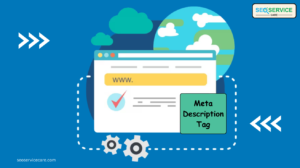In today’s digital age, establishing a strong online presence is crucial for the success of small businesses. With consumers increasingly relying on search engines to find products, services, and information, it has become essential for small businesses to optimize their online visibility. This is where Search Engine Optimization (SEO) services play a pivotal role. SEO is a strategic approach that focuses on improving a website’s visibility and rankings on search engine results pages. While SEO is beneficial for businesses of all sizes, it holds particular importance for small businesses. In this article, we will explore why SEO services are vital for small businesses and how they can significantly impact their growth and success.
Importance of online presence for small businesses
In today’s digital age, having a strong online presence is crucial for the success of small businesses. An online presence refers to a business’s visibility and activity on the internet, including its website, social media profiles, online directories, and other digital platforms. Here are several reasons why establishing and maintaining an online presence is essential for small businesses:
1. Increased Visibility
A robust online presence allows small businesses to reach a much larger audience compared to traditional brick-and-mortar establishments. With billions of people using the internet daily, having an online presence ensures that potential customers can find and discover your business. It provides an opportunity to expand beyond local markets and tap into regional, national, or even international customer bases.
2. 24/7 Availability
Unlike physical stores with limited operating hours, an online presence enables small businesses to be accessible to customers around the clock. A website or e-commerce platform allows customers to browse products or services, make purchases, and seek information at any time convenient to them. This availability enhances customer convenience and satisfaction, potentially leading to increased sales and customer loyalty.
3. Cost-Effective Marketing
Building an online presence can be a cost-effective alternative to traditional marketing methods for small businesses with limited budgets. Establishing a website, utilizing social media platforms, and engaging in online advertising often require lower investments compared to traditional advertising channels like print, radio, or television. Online marketing techniques, such as search engine optimization (SEO) and content marketing, can generate long-term results at a fraction of the cost of traditional advertising.
4. Targeted Marketing
Online presence allows small businesses to target their marketing efforts more precisely. Through various digital marketing tools and techniques, businesses can analyze customer data, behavior, and preferences to create personalized and targeted marketing campaigns. This helps maximize the impact of marketing activities, increase conversion rates, and optimize return on investment (ROI).
5. Customer Engagement and Feedback
An online presence provides a platform for small businesses to engage with their customers, gather feedback, and build relationships. Through social media channels, online reviews, and customer support platforms, businesses can directly communicate with their audience, address concerns, and build trust. Engaging with customers online can foster loyalty and encourage positive word-of-mouth, which is invaluable for small businesses looking to establish a strong reputation.
6. Competitiveness
In many industries, having an online presence is essential to remain competitive. Customers now expect businesses to have a website, social media presence, and online information readily available. Without an online presence, small businesses risk losing customers to competitors who have embraced the digital realm. An online presence allows small businesses to level the playing field and compete effectively with larger enterprises.
7. Brand Building and Differentiation
An online presence offers opportunities for small businesses to build and differentiate their brand. Through consistent branding elements, engaging content, and a well-designed website, businesses can create a unique and memorable brand identity. A strong brand helps small businesses stand out from the competition and establish a loyal customer base.
8. Business Insights and Analytics
Online platforms provide valuable data and analytics that can inform business decisions and strategies. Small businesses can track website traffic, user behavior, conversion rates, and other key metrics to gain insights into customer preferences and market trends. This data-driven approach allows businesses to make informed decisions, refine their marketing strategies, and continuously improve their online presence.
Having a robust online presence is crucial for the success and growth of small businesses in today’s digital landscape. It offers increased visibility, cost-effective marketing opportunities, targeted customer engagement, and the ability to compete with larger enterprises. Small businesses that invest in building and maintaining an online presence position themselves for long-term success, reaching a wider audience and establishing a strong brand presence in the digital realm.
Benefits of organic traffic for small businesses

Organic traffic refers to the visitors who come to a website through unpaid search engine results. It is generated when users find a website by using keywords or phrases in search engines like Google, Bing, or Yahoo. For small businesses, organic traffic holds several significant benefits:
1. Cost-Effective
Organic traffic is essentially free, unlike paid advertising or sponsored search results. Small businesses often have limited marketing budgets, so relying on organic traffic allows them to generate website visitors without incurring direct costs per click or impression. While SEO efforts may require investments in terms of time and resources, the long-term benefits and sustained traffic make it a cost-effective strategy.
2. Increased Visibility and Credibility
Ranking high in organic search results provides small businesses with increased visibility and exposure to a wider audience. When a website appears on the first page of search engine results, it is seen as more trustworthy and credible by users. This can lead to higher click-through rates, increased brand recognition, and a positive perception of the business.
3. Targeted and Relevant Traffic
Organic traffic tends to be highly targeted and relevant to the small business’s products or services. Users who find a website through organic search results are actively searching for specific keywords or phrases related to the business. As a result, organic traffic brings visitors who are more likely to have a genuine interest in the offerings, leading to higher conversion rates and increased sales opportunities.
4. Long-Term Results
While paid advertising campaigns offer immediate visibility and traffic, they cease to generate results once the budget is depleted. Organic traffic, on the other hand, can provide long-term and sustainable results. By implementing effective SEO strategies, small businesses can improve their website’s visibility, rankings, and overall online presence. Once achieved, these organic rankings can generate ongoing traffic and attract potential customers over an extended period, helping small businesses to continuously grow and thrive.
5. Trust and Brand Authority
Ranking high in organic search results helps establish trust and brand authority. When a small business consistently appears at the top of search engine results for relevant keywords, it signals to users that the business is a credible and authoritative source in its industry. This enhances the business’s reputation and builds trust with potential customers, increasing the likelihood of conversions and fostering customer loyalty.
6. Enhanced User Experience
Organic traffic often results from search queries where users are seeking specific information or solutions. By optimizing their website for relevant keywords and providing valuable and engaging content, small businesses can improve the user experience. A user-friendly website with useful information creates a positive impression, encourages longer website visits, and increases the chances of conversions or repeat visits.
7. Competitive Advantage
In competitive industries, organic traffic can provide a significant competitive advantage to small businesses. By outranking competitors in search engine results, small businesses can capture a larger share of potential customers and stand out from the competition. A strong organic presence helps level the playing field and enables small businesses to compete effectively with larger corporations that may have more extensive marketing budgets.
8. Data Insights and Optimization
Organic traffic allows small businesses to gather valuable data and insights. Website analytics tools provide information about visitor behavior, demographics, popular landing pages, and conversion rates. This data can be used to optimize the website, refine marketing strategies, and improve overall performance. By understanding user preferences and trends, small businesses can make data-driven decisions to enhance their online presence and drive more organic traffic.
Organic traffic offers numerous benefits to small businesses. It is a cost-effective way to increase visibility, credibility, and brand authority. Organic traffic tends to be highly targeted and relevant, leading to higher conversion rates and increased sales opportunities. By focusing on effective SEO strategies, small businesses can generate long-term and sustainable traffic, gain a competitive edge, and build a solid foundation for their online success.
Cost-Effectiveness and Long-Term Benefits
Cost-Effectiveness and Long-Term Benefits of Organic Traffic for Small Businesses. Organic traffic, which refers to the visitors who find a website through unpaid search engine results, offers small businesses several cost-effective and long-term benefits:
1. Cost-Effectiveness
Generating organic traffic is a cost-effective strategy for small businesses, particularly those with limited marketing budgets. Unlike paid advertising, which involves paying for each click or impression, organic traffic is free. While implementing effective SEO strategies may require investments in terms of time, resources, and potentially hiring SEO professionals, the long-term benefits and sustained traffic make it a cost-efficient approach compared to continuous advertising expenses.
2. Sustainable Results
Organic traffic provides small businesses with sustainable results over the long term. Once a website achieves high organic rankings for relevant keywords, it can continue to attract traffic without ongoing investment. While it is important to maintain and optimize the website’s SEO, the initial efforts put into improving organic visibility can yield lasting results, leading to sustained traffic, brand exposure, and customer acquisition.
3. Increased Return on Investment (ROI)
The cost-effectiveness of organic traffic translates into a higher return on investment for small businesses. By driving targeted and relevant traffic to the website, organic traffic has a higher likelihood of converting into leads or customers. Since organic traffic does not involve direct costs per click or impression, the acquisition cost per customer tends to be lower compared to paid advertising, resulting in a more favorable ROI.
4. Trust and Credibility
Ranking high in organic search results establishes trust and credibility for small businesses. Users perceive businesses that appear at the top of search engine results as more reputable and trustworthy. This positive association can lead to higher click-through rates, increased user engagement, and a greater likelihood of conversions. Over time, a strong organic presence can help build a brand’s credibility and authority within its industry, fostering customer loyalty and encouraging word-of-mouth referrals.
5. Targeted Traffic and Higher Conversion Rates
Organic traffic tends to be highly targeted and relevant to the small business’s offerings. When users find a website through organic search results, they are actively seeking information, products, or services related to specific keywords. This targeted traffic has a higher likelihood of converting into leads or customers as they have already expressed interest or intent. Consequently, organic traffic typically exhibits higher conversion rates compared to other traffic sources, resulting in more sales opportunities for small businesses.
6. Long-Term Brand Exposure
Achieving and maintaining high organic rankings leads to long-term brand exposure. When a website consistently appears in search results for relevant keywords, it gains visibility and exposure to a wide range of potential customers. This prolonged brand exposure reinforces brand recognition, increases brand recall, and helps small businesses establish themselves as industry authorities. As a result, the brand becomes more recognizable and memorable to potential customers, contributing to long-term growth and success.
7. Competitive Advantage
A strong organic presence can provide small businesses with a competitive advantage, especially in crowded industries. By outranking competitors in search engine results, small businesses can capture a larger share of the market and attract more customers. This advantage is particularly significant for small businesses with limited marketing budgets that may struggle to compete with larger corporations in terms of advertising expenditures. Organic traffic levels the playing field and allows small businesses to compete effectively based on the relevance and quality of their content and website optimization.
Organic traffic offers small businesses cost-effective marketing, sustainable results, increased ROI, trust and credibility, targeted traffic, long-term brand exposure, and a competitive edge. By investing in effective SEO strategies, small businesses can drive organic traffic, expand their customer base, and position themselves for long-term success in the digital landscape.
Competing with Larger Businesses
Competing with larger businesses can be a challenge for small businesses due to differences in resources, brand recognition, and market presence. However, small businesses can adopt strategic approaches to level the playing field and effectively compete. Here are some strategies to consider:
Niche Targeting
Instead of trying to compete directly with larger businesses across the entire market, small businesses can focus on specific niche markets or customer segments. By identifying a unique niche or specialized offering, small businesses can differentiate themselves and cater to the specific needs and preferences of their target audience. This allows them to build a loyal customer base and establish themselves as experts in their niche.
Personalized Customer Experience
Small businesses can provide a personalized and exceptional customer experience that larger businesses may struggle to deliver. By focusing on building relationships and providing personalized attention, small businesses can create a strong connection with their customers. This can include personalized communication, tailored recommendations, and exceptional customer service. A positive customer experience can lead to customer loyalty, positive reviews, and referrals, giving small businesses a competitive advantage.
Agility and Adaptability
Small businesses have the advantage of being more agile and adaptable compared to larger corporations. They can respond quickly to market changes, customer feedback, and emerging trends. By staying nimble and flexible, small businesses can adjust their strategies, offerings, and marketing approaches to meet evolving customer demands. This ability to adapt swiftly allows small businesses to stay relevant and competitive in dynamic markets.
Focus on Local Market
Small businesses can capitalize on their local presence and community connections. By emphasizing their local roots, small businesses can build strong relationships with local customers, participate in community events, and leverage local marketing opportunities. This localized approach can help small businesses establish a loyal customer base and compete effectively within their local market, where larger businesses may have less presence or connection.
Unique Branding and Storytelling
Small businesses can differentiate themselves through unique branding and compelling storytelling. By sharing their brand story, values, and mission, small businesses can connect with customers on an emotional level. Authenticity and a strong brand narrative can resonate with customers, fostering loyalty and differentiation. Small businesses can leverage their stories to stand out in a crowded market and create a distinct identity that sets them apart from larger competitors.
Digital Marketing and Online Presence
A robust online presence and effective digital marketing strategies are vital for small businesses to compete with larger players. Small businesses can leverage digital channels, such as social media, search engine optimization (SEO), content marketing, and email marketing, to reach their target audience effectively. By focusing on targeted and engaging digital campaigns, small businesses can increase their visibility, attract customers, and compete on a more level playing field in the digital space.
Strategic Partnerships and Collaborations
Small businesses can explore strategic partnerships and collaborations with complementary businesses or influencers in their industry. By joining forces, small businesses can leverage each other’s strengths, resources, and customer bases. Collaborations can lead to increased brand exposure, access to new audiences, and shared marketing efforts, allowing small businesses to compete more effectively and expand their reach.
Quality and Specialization
Small businesses can differentiate themselves by offering high-quality products or services and specializing in specific areas. By focusing on excellence and providing unique value propositions, small businesses can build a reputation for superior quality and expertise. Customers often appreciate specialized offerings and are willing to choose smaller businesses that excel in a particular niche over larger competitors with a broader but potentially less focused range of offerings.
Small businesses can compete with larger businesses by leveraging their agility, personalized customer experience, niche targeting, local presence, unique branding, digital marketing, strategic partnerships, and a focus on quality and specialization. By implementing these strategies effectively, small businesses can carve out their place in

Measurable Results and Analytics
Importance of data-driven decision making for small businesses
- Informed decision making: Data and analytics provide insights that help small businesses make informed decisions about their SEO strategies and marketing efforts.
- Performance evaluation: Measurable results allow businesses to assess the effectiveness of their SEO campaigns and make necessary adjustments to improve performance.
- ROI tracking: Analytics enable businesses to track the return on investment (ROI) of their SEO activities, ensuring that resources are allocated effectively.
SEO analytics and tracking tools
- Monitoring keyword rankings and organic traffic
- Tools like Google Analytics and SEO platforms provide data on keyword rankings, allowing businesses to track their search engine positions and identify opportunities for improvement.
- Organic traffic metrics help evaluate the effectiveness of SEO efforts in driving relevant traffic to the website.
- Analyzing user behavior and engagement metrics
- Metrics like bounce rate, time on page, and pages per session provide insights into user behavior and engagement with the website.
- Businesses can identify high-performing pages and optimize those that are not performing well to improve user experience.
- Identifying areas for improvement
- SEO analytics tools provide data on website errors, broken links, and crawlability issues, enabling businesses to identify and resolve technical issues that may affect SEO performance.
- Conversion tracking helps measure the effectiveness of SEO in driving desired actions, such as form submissions or purchases.
- Competitive analysis
- SEO analytics tools allow businesses to analyze their competitors’ performance, keyword rankings, and backlink profiles.
- By understanding their competitors’ strategies, businesses can make informed decisions to stay competitive in the search engine rankings.
Continuous optimization and improvement
- Using data insights: Data and analytics help businesses identify areas of improvement in their SEO strategies, such as keyword targeting, content optimization, or technical enhancements.
- A/B testing: Businesses can experiment with different SEO tactics and measure their impact through analytics, enabling them to make data-driven decisions for better optimization.
- Performance tracking: Regular monitoring of SEO metrics and analytics allows businesses to track their progress, identify trends, and adapt their strategies accordingly.
Reporting and communication
- Reporting to stakeholders: Measurable results and analytics provide businesses with the ability to generate comprehensive reports to share with stakeholders, showcasing the impact of SEO efforts.
- Communication with SEO professionals: SEO analytics facilitate effective communication between businesses and SEO professionals, enabling them to collaborate on strategies and make data-driven decisions together.
Conclusion
- Emphasize the importance of measurable results and analytics for small businesses engaged in SEO.
- Encourage businesses to leverage data insights to optimize their SEO strategies continuously.
- Highlight the role of SEO analytics tools in tracking performance, identifying areas for improvement, and facilitating informed decision making.
- Stress the significance of reporting and communication to demonstrate the value of SEO efforts to stakeholders.





